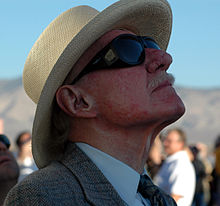Detective Ron Harris: (Ron Glass)
[brings Mayflower, who's dressed in full pimp regalia into the Squad Room]
Okay. Come on. Come on. Come on.
Mr. Mayflower: Hey, man, since when is it a crime to come to the defense of a lady and try and protect her honor? Since when?
Detective Ron Harris: When you push her trick out of a second story window.
Mr. Mayflower: Don't tell me chivalry ain't dead
Noting the passing of actor Ron Glass.
No one who has ever been "on the job" will seriously differ with the next sentence... The TV show Barney Miller (1974 to 1982) came closest to how police work actually looks from the inside. Say whatever you will for your own nomination. It's not even debatable.
There was the elder statesman whose over sixty urinary tract needed regular attention. The lovable, and a tad dense, guy with the girlfriend who bakes him a dish of hashish brownies. The Japanese-American cop who, when told "I've never seen a Japanese cop before" replied "Ever been to Tokyo?"
And there was Harris. He'd gone to law school, but instead of pursuing that career he became a cop. He spent much of his down time at his typewriter, working on his novel Blood on the Badge. He hoped it would make him famous. It was his ticket out of the madness, to capture it all on paper for an unbelieving world. He enjoyed modest success but never left the precinct house job.
I know the feeling. In the end, it isn't a way out. It's a way to stay in, to make sense of it all.
Ron Glass played Harris with understated grace. Oh, the man could summon a righteous indignation worthy of any detective on a heart-felt rant. He could shame with a word or phrase, put down with a glance. He was bright, urbane - a thinking man's cop.
Mr. Glass enjoyed a long and distinguished acting career, working regularly until just a few years ago. His were supporting roles, often teachers or lawyers.
Congratulations on your novel, detective. Rest easy, my brother.
Mr. Mayflower: Hey, man, since when is it a crime to come to the defense of a lady and try and protect her honor? Since when?
Detective Ron Harris: When you push her trick out of a second story window.
Mr. Mayflower: Don't tell me chivalry ain't dead
Noting the passing of actor Ron Glass.
No one who has ever been "on the job" will seriously differ with the next sentence... The TV show Barney Miller (1974 to 1982) came closest to how police work actually looks from the inside. Say whatever you will for your own nomination. It's not even debatable.
There was the elder statesman whose over sixty urinary tract needed regular attention. The lovable, and a tad dense, guy with the girlfriend who bakes him a dish of hashish brownies. The Japanese-American cop who, when told "I've never seen a Japanese cop before" replied "Ever been to Tokyo?"
And there was Harris. He'd gone to law school, but instead of pursuing that career he became a cop. He spent much of his down time at his typewriter, working on his novel Blood on the Badge. He hoped it would make him famous. It was his ticket out of the madness, to capture it all on paper for an unbelieving world. He enjoyed modest success but never left the precinct house job.
I know the feeling. In the end, it isn't a way out. It's a way to stay in, to make sense of it all.
Ron Glass played Harris with understated grace. Oh, the man could summon a righteous indignation worthy of any detective on a heart-felt rant. He could shame with a word or phrase, put down with a glance. He was bright, urbane - a thinking man's cop.
Mr. Glass enjoyed a long and distinguished acting career, working regularly until just a few years ago. His were supporting roles, often teachers or lawyers.
Congratulations on your novel, detective. Rest easy, my brother.













